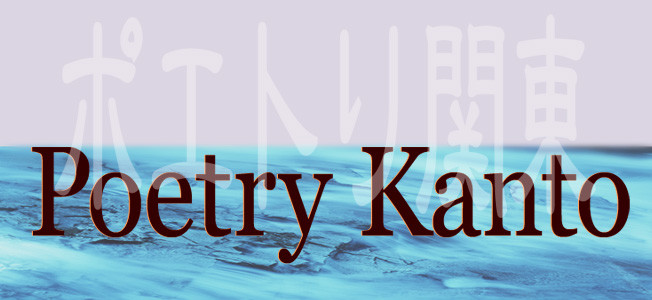Home
We are at a crossroads of our modern civilization: we dwell in the cathedral of science, with bee-like cultural pollinators nevertheless much in need of. There is cultural pain and suffering all over the globe. How can we come to terms with different cultural gravities? In an age when we are struggling with ‘cultural identity’, perhaps we need to learn how to navigate those spaces or gaps between cultures, between worlds. “Can identity become less rooted in the nation and more attuned to our relations with one another?” inquired a newspaper columnist some years ago. With each new issue, Poetry Kanto has been conscious of trying to posit another way of looking at this question and all its multiple, possible, provisional answers.
The existence of a journal like Poetry Kanto is living proof of a dialogue between cultures which is going on all the time. A bilingual, bicultural poetry magazine published in Yokohama, Japan, Poetry Kanto was created in 1968 in part to facilitate that dialogue, both cultural and literary, between cultures.
By bringing Japan’s poetic voices via English translation into an international dialogue, Poetry Kanto has sought to help create a transformative space where poetry’s insights are made available for and can engage the entire range of cultures, not just getting into the cultural mix but adding to it, enriching it, fermenting it. Magazines like Poetry Kanto can contribute to that cross-fertilization by bringing to the Western world the Japan that, in writer Pico Iyer’s words, “all of us have most to learn from – and that’s too often lost. … the true heart of a country that so many of us fail to see – or indeed, to listen to…” It is this “Japan” that has been the soil for the work Poetry Kanto has tried over the years to do.
The aim of the new website is not only to publish a new online edition annually and archive the legacy of Poetry Kanto itself but also, potentially, to bring together information on other poetry-related research and translation from Japan. Print issues of Poetry Kanto from 1984 to 2012 are here in varying degrees made available for interested readers and scholars worldwide.


